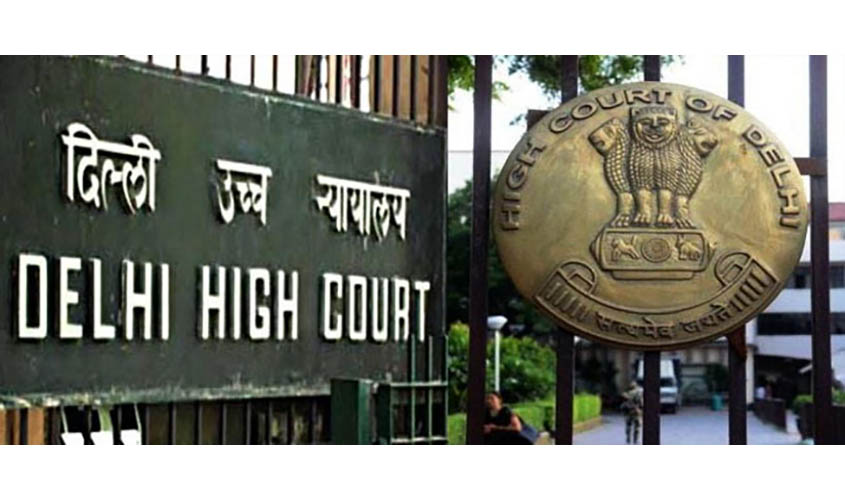The Delhi High Court’s order restoring the membership of 20 Aam Aadmi Party (AAP) MLAs in the office of profit case has come as a huge relief even for its two adversaries, the BJP and the Congress. The High Court, while turning down Election Commission’s ruling, observed that the principle of natural justice had not been followed in the instance of the MLAs, who should have been afforded the right to present their point of view. The EC was taken totally by surprise, and Sunil Arora, one of the three Commissioners stated publicly that the judgement would be followed both in letter and spirit.
It is evident that the EC’s position has become extremely untenable, since it was on its recommendations that the President had issued his notification leading to the disqualification of the 20 MLAs. The High Court diktat has not only come as an enormous setback for the EC, but it has also been a source of great embarrassment for the President as well.
There is a strong possibility that the EC, in a face-saving exercise, may move the Apex Court, thereby seeking its intervention on the ground that it was the sole body to determine the status of elected representatives in the case of the violation of accepted norms. In the event, if the EC accepts the High Court verdict, it shall have no option but to give a hearing to the aggrieved MLAs, either individually or collectively. The restoration of the MLAs’ status was a natural corollary once the High Court concluded that they had been denied the opportunity to present their case. Therefore, in order for them to be heard by the EC, the reinstatement of their membership was inevitable.
The AAP leadership, which has been going through tremendous stress following the revolt in its Punjab unit, after Arvind Kejriwal tendered his unconditional apology to Akali leader Bikram Singh Majithia, was visibly relieved with the High Court judgement.
Noticeably, the party’s stand on the office of profit issue has been upheld for the time being or till the time when the EC takes a final view on the matter. Undoubtedly, Kejriwal has succeeded in sending a clear signal to his cadres that he had not wilted under pressure from the EC, and had through thick and thin, stood steadily with his 20 disqualified MLAs. Thus undeniably he was able to buy time to placate at least ten of his Punjab MLAs in order to prevent what at one stage appeared to be an imminent split in its ranks.
For AAP, keeping the party unit alive and active in Punjab is of paramount importance, since in 2014, the state provided the party its first batch of four MPs in the Lok Sabha. It was one region where the AAP leadership had hoped that its footprint after Delhi would find roots strong enough to help in posing a formidable challenge to both the Akalis and the Congress. This did not happen in the 2017 polls, after Captain Amarinder Singh singularly led his party, against all odds, to an incredible victory.
However, Delhi is decidedly the home turf of AAP, and in any election that is held here, the party will be a major player. It might seem far-fetched but even if byelections had been held for the 20 seats that were affected by the EC order, the AAP would have easily emerged victorious in at least 16 constituencies. Thus the High Court order has also furnished a cushion for the two main contenders—the BJP and the Congress to, in the meantime, consolidate their position.
As things stand today, the Congress has yet to re-establish its presence in the national capital. It has no seat in Parliament and none in the Assembly either. Its top leaders have been effectively defeated in recent polls and for it to re-organise itself, immense time and effort would be required. The party is hoping that Rahul Gandhi’s ascendancy may bring about a change in its fortunes in the capital. The Congress vote-base virtually has been usurped by AAP, which is now the principal party, and thus the prime challenger to the BJP.
Like the Congress, the BJP too is heaving a sigh of relief, following the High Court order. The atmosphere in Delhi is becoming exceedingly hostile what with the sealing of shops in various markets. As a consequence, BJP leaders are on the defensive. In addition, there is acute factionalism in the city unit, and had it not been for the efforts put forward by Narendra Modi in numerous elections, the party perhaps would have been struggling to stay afloat. In its over enthusiasm to win over the Poorvanchali votes in the capital, the BJP has disappointed its core constituency of Punjabis and Banias. A majority of its functionaries, who represent Delhi, have not been able to make their mark, though some of the leaders such as Vijay Goel, Dr Harsh Vardhan and Vijendra Gupta are engaged in energising the party.
The High Court order has put the AAP in the driver’s seat, and it is for the others to revive their chances. Had the EC order been upheld, matters would have been no different. Therefore, the BJP and the Congress should thank the constellation of stars that they have not had to face an election, which in all likelihood would have blown the whistle on them. Between us.

